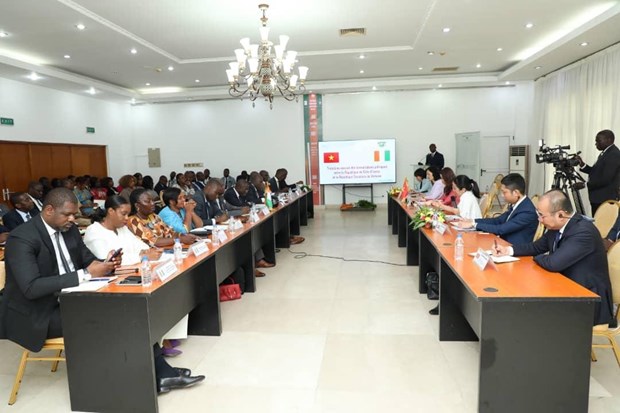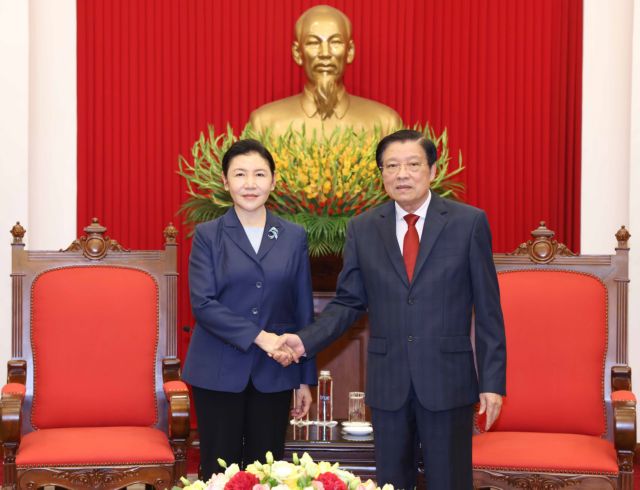 Economy
Economy

This week, Brian Spence, our resident expat financial expert, digs deeper into why global tensions may put a brake on Vietnamese growth.
54081339PM.JPG) |
| Brian Spence |
Brian Spence*
Việt Nam is set to play a pivotal role in Southeast Asia’s future economic landscape and emerge as one of the region’s most important countries. Its explosive annual growth of nearly 8 per cent in the noughties has retrenched only to around 6.5 per cent on average since 2010. Strong growth should continue, not least due to a young, dynamic and well-educated labour force, which is nonetheless very competitively priced. The country also represents a highly attractive domestic market of 90 million citizens with middle-class aspirations – hence all the trade envoys visiting this beautiful place.
Việt Nam also enjoys a crucial – and hard-won - place in the world’s supply chains, in large part due to the authorities’ very proactive approach to global trade. Investment into the country has been encouraged across a number of sectors, from electronics to farming. Meanwhile, a flurry of some 16 free trade agreements have helped Vietnamese exports explode, boosting merchandise trade to over 170 per cent of GDP and marking out the country as a regional leader (behind only hotspots like Hong Kong and Singapore).
The Trans-Pacific Partnership (TPP) was set to further amp up Việt Nam’s economic ascent, with many believing that the country was to be among those benefitting most from the trade and investment pact. Yet here President Donald Trump’s “America First” agenda intervened. The withdrawal of the US, while it does not end the TPP project, does leave the agreement somewhat in disarray. Market access generally, but especially to the US, was a huge draw to Việt Nam assenting to the agreement’s strict rules.
Ripple effects
Now, “Trump Tariffs” on steel and aluminium (and who knows what else in future) threaten to upset the global economic apple cart and curtail the growth of Asia’s emerging economies. If a global trade war materialises and, as some fear, the world gets bogged down in retaliatory measures, there is a lot for Việt Nam and its regional peers to lose.
One of the natural consequences of globalisation is of course that countries’ fortunes are more and more closely bound, so that the fallout from shocks like trade wars ripple on with no one immune. Ironically, then, it is now thought that that Asian economies would suffer far more than China if President Trump were to carry out his threat to place $150 billion of tariffs on its exports. According to Bloomberg, the GDP growth rate of Asian economies would fall 1.1 per cent for every 10 per cent drop in Chinese exports whereas China’s growth would slow by only 0.3 percentage points. What an incredibly wealthy nation like China can absorb is very different to an emerging one.
We must also be conscious that direct trade actions have already been visited on Việt Nam by the US. Back in January, President Trump announced tariffs on imported solar cells, modules and manufactured washing machines, hitting Việt Nam and South Korea along with China. This was the first such action taken in 16 years, underscoring that we are really in uncharted waters here.
Defensive preparations
One shouldn’t be alarmist about the potential for geopolitical shocks to wreck economies (particularly when you’ve lived through as many crises as I have). However, I think it would be naïve not to have defensive measures in mind for the management of one’s assets as we embark on even more uncertain times.
The worst-case scenario resulting from global trade tensions would be a return to tariffs of the kind seen before the multilateral trading system came into being – a disaster which economists predict would see trade flows plunge 60 per cent and global economic growth fall by 2.4 per cent. To put things into perspective, that’s a bigger fall than was caused by the Global Economic Crisis of 2008, and back then people were talking about the end of the economic world!
Việt Nam’s growth story is still giving us a lot to be optimistic about, but it would be foolhardy not to be thinking about the downside should international trade relations go sour. The question now is, is your investment portfolio well arranged to weather the storm?
* Brian Spence is managing partner of S&P Investments. He has over 35 years of experience in the UK financial services industry as an investment manager, financial planner and M&A specialist. He is a regular contributor to the UK financial press and has a deep understanding of the financial services community. Brian’s column will reflect on all the challenges and opportunities within the Vietnamese market, bringing a fresh perspective to today’s hottest issues. The columnist’s email address is brian@sandpinvestments.com. The company website is www.sandpinvestments.com.









